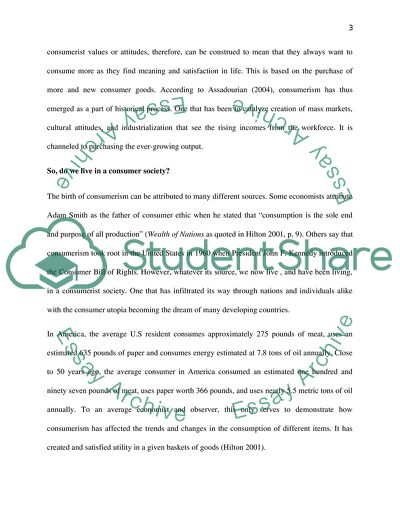Cite this document
(The Nature of Consumerism Essay Example | Topics and Well Written Essays - 2000 words, n.d.)
The Nature of Consumerism Essay Example | Topics and Well Written Essays - 2000 words. https://studentshare.org/sociology/1844898-consumersim
The Nature of Consumerism Essay Example | Topics and Well Written Essays - 2000 words. https://studentshare.org/sociology/1844898-consumersim
(The Nature of Consumerism Essay Example | Topics and Well Written Essays - 2000 Words)
The Nature of Consumerism Essay Example | Topics and Well Written Essays - 2000 Words. https://studentshare.org/sociology/1844898-consumersim.
The Nature of Consumerism Essay Example | Topics and Well Written Essays - 2000 Words. https://studentshare.org/sociology/1844898-consumersim.
“The Nature of Consumerism Essay Example | Topics and Well Written Essays - 2000 Words”. https://studentshare.org/sociology/1844898-consumersim.


